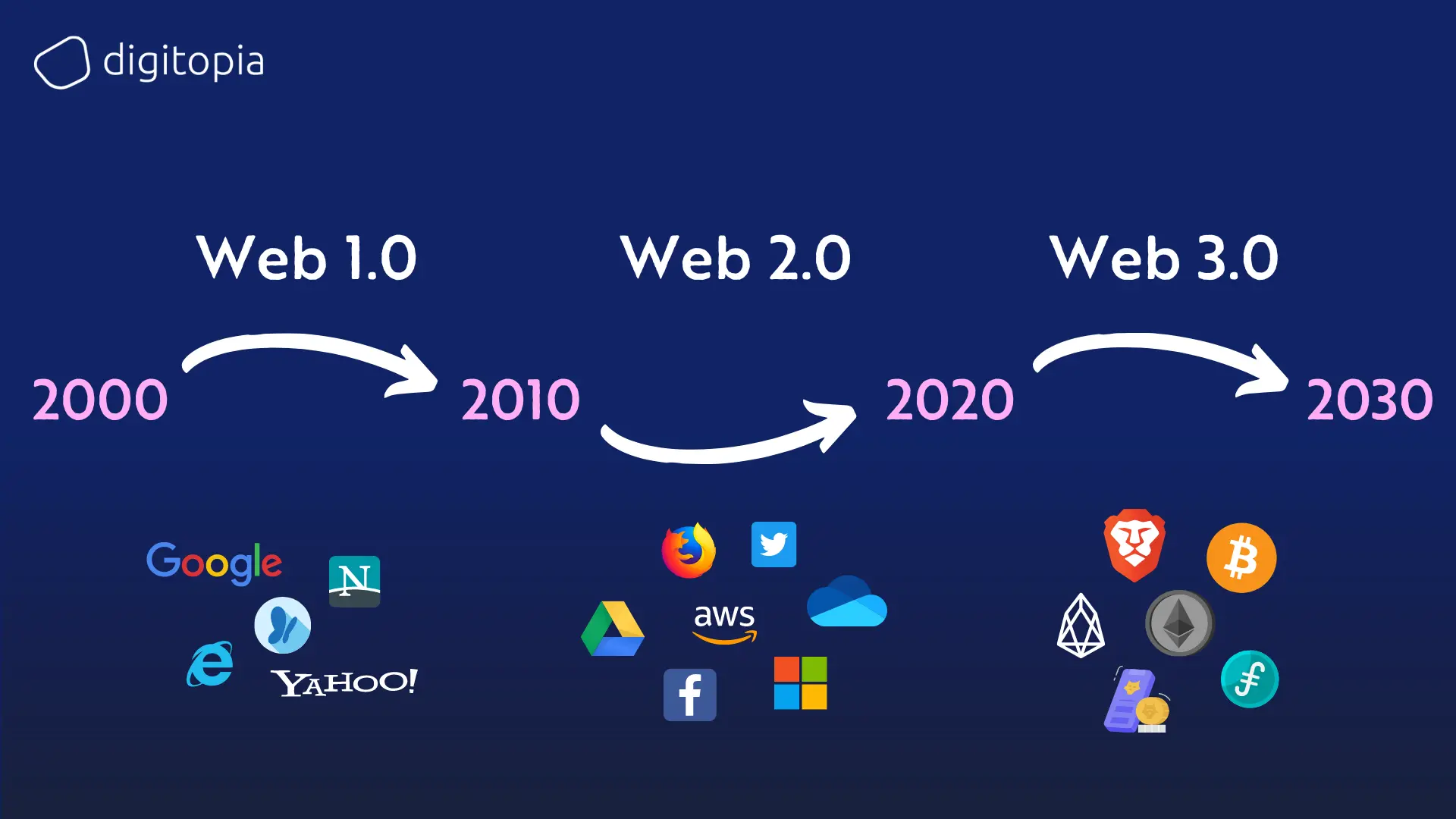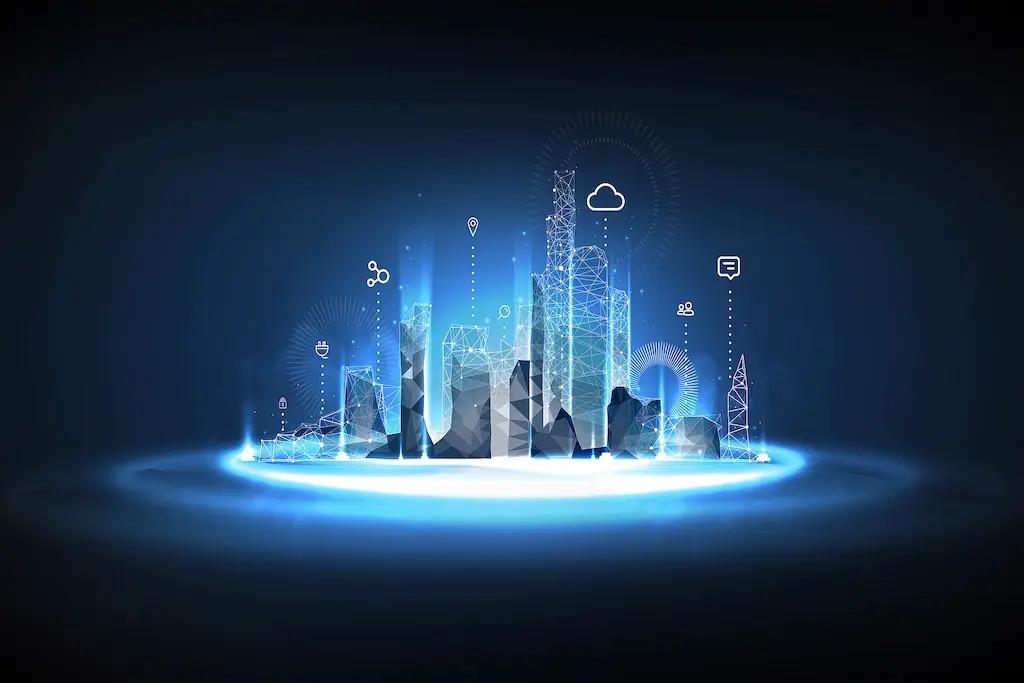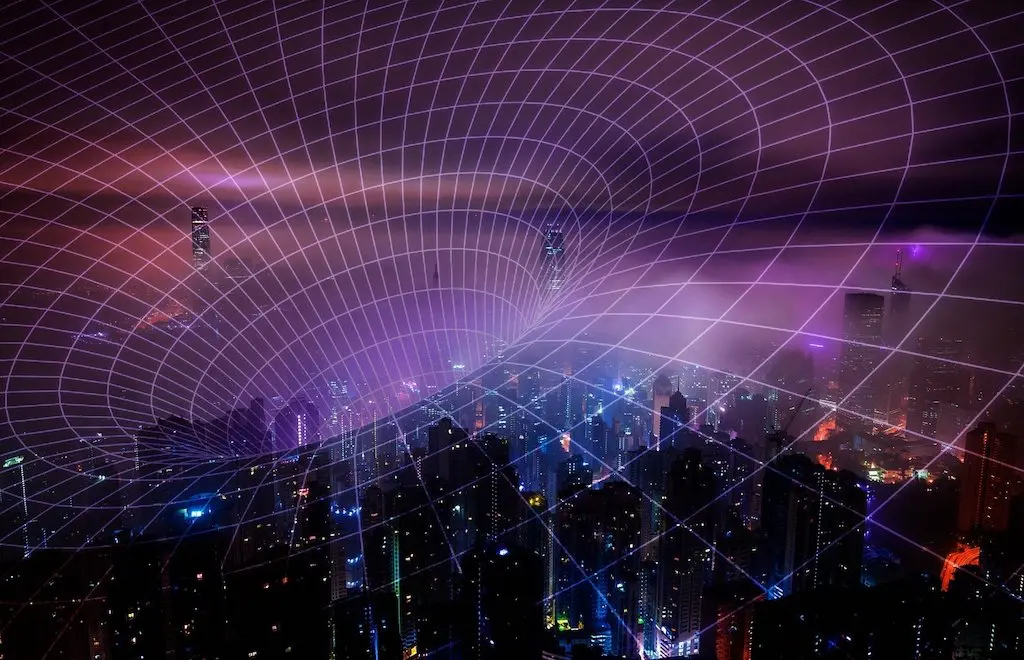
The term metaverse (not to be confused with Meta, the company) has been circulating more in recent years, with myriad definitions and estimations of how it will shape the next decade of internet systems and standards. Recently brought to the public’s attention by Mark Zuckerberg’s Connect 2021 conference, you might be fooled into believing this is a new idea when in fact, the metaverse dates back many years. The Metaverse referred to by Zuckerberg actually part of a larger series of predictions and investments in what experts are anticipating to be the next generation of the internet.
At this point, we’re on what is considered the second generation of the internet or ‘Web 2.0′. New technology, greater processing power and enhanced connectivity are leading to the belief that soon we will enter a new era, defined by its spatial capabilities in 3-dimensional settings instead of the current largely 2-dimensional experience we interface with on a daily basis through our phones and screens. This new era is often referred to as ‘Web 3.0′.

The most straightforward way of understanding Web 3.0 (or the spatial internet) would be the breaking down of barriers that define the current virtual and real worlds. In the sense of virtual reality, this involves bringing our physical presence into the digital landscape, occupied by various metaverse spaces with which we can interact. On the other hand, wielding augmented reality we can bring the digital world into our own, mapping the physical world into data and then overlaying it with interfaces that would be visible using glasses, phones or other mediums to interact with it. Advocates of this new age believe that these new technologies could have the same level of transformative effect on our lives that the internet has had to date.
So if these technologies are already out there and being developed, where does the Metaverse come into it? Well, Facebook, now known as Meta, has made a dramatic shift in organisational priorities and invested whole-heartedly in the development of Metaverse technology over the next 10 years. While considered early in development today, their ambitious goals involve the ability to host a personal avatar on the metaverse and interact with different mediums all through one, consistent profile. The distinction here is that previous existing ‘protometaverses’ have all been individual, separate entities that do not interface with one another. In the same way today there is only one ‘internet’, Meta is aiming to construct the next uniform platform that all users can engage with. Following suit, other organisations like Google and Microsoft are making major investments to also engage with this new form of connectivity with many other large companies reading their R&D efforts.
How Will It Work?

Want to speak to your bank? You can chat ‘face to face’ (digitally) on the metaverse with one of the bank’s service team right now. Want to go shopping? Why not head to the virtual store of your favourite brand, peruse the items and then make a purchase? The metaverse will provide connected experiences for all kinds of different purposes, all connected by your profile (and likely your bitcoin wallet) to support you with whatever you need.
Through the use of NFT and bitcoin technology, consumers will also be able to purchase and resell unique digital items, creating their own metaverse-based lives, features or services to meet their needs.
When you log out of the Metaverse, it won’t go anywhere; the metaverse is constantly running, hosting users for entertainment, socialising, daily life and more. A persistent, digital world.
Is It Just a Dream?

It might all seem somewhat farfetched today, but companies are excited about the prospects of this whole new world; demonstrating their willingness to believe in this future through massive investments into new technology to support the transition. Meta is also optimistic, aiming for 1 billion users of the Metaverse in the next decade (for context, Facebook achieved this figure in 9 years).
You might be worried about the thought the entire internet controlled by Meta, but with the advent of blockchain technology this would not be the case. Using interoperable blockchain-based frameworks, data and control would be redistributed to the population with information securely stored in a way that cannot be tampered with. What’s more, ownership of individual items and data could be assigned to users rather than stored on company hard drives, allowing for new and exciting possibilities of doing business. Compared to the current internet where data is largely kept by businesses, this could well be an even more democratized form of internet, freer than ever before.
Why Do You Need It?
This might sound exciting for consumers looking to have fun and make their lives easier, but what does it mean for organisations? Well, estimates on the value of the metaverse to organisations of the future are enormous, running as high as $1 trillion by 2030.
Many are speculating that we are a long way off seeing the true benefits of the Metaverse, but this might not be the case. Various technologies in AR, VR and connectivity (5G) are converging to make larger metaverses possible, even probable, in the next few years. The foundations of the metaverse are already built in the previously mentioned ‘protometaverses’, it may simply be a case of scaling them up and advancing their technology to be suitable for Web 3.0’s purposes.
Imagine today not having a website on the internet. How much business would be lost? How disgruntled would your customers be to not access their favourite items in a more convenient way than going to your physical stores? At the turn of the millennium this was entirely normal, most organisations weren’t aware of the internet nor did they have the skills to utilise it effectively. Now skip forward 5 to 10 years, your competitors are offering a metaverse-based storefront where consumers can slip on their VR headset and try on various items with their friends and engage with staff in real time from the comfort of their own home. Web 2.0 would look quite basic in comparison, wouldn’t it?
Technology is advancing quicker than ever, and consumers are demanding the best quality of service possible. A poorly run website today already leads to drop out and disinterest as consumers prefer a streamlined system, and this will continue into the future. Businesses are starting to realise the potemtial that the metaverse could have on their margins, and while it may seem a long way off, the technical skills and capabilities required to engage with the platform will be enormous.
Are you willing to risk being left behind on an entirely new generation of the internet? Perhaps a better question than why do you need it is, how could you not?
How to Prepare For The Metaverse
We are still in the early stages of the Metaverse, and it remains to be seen exactly how Web 3.0 will take shape. It might not be possible to define your offering on the Metaverse today, but what you can do is build your digital capabilities and skills to be able to develop the tools and software you need to launch your metaverse presence as early as possible.
Consider what might be possible with the Metaverse; how will it change your business model? What new services could it unlock? What competitive advance will it provide over existing platforms? How can it enhance your profit margins and reduce costs? How might it strengthen your brand engagement? The list goes on.
We strongly encourage organisations to begin planning for this digital revolution. Mark Zuckerberg has expressed his image of the metaverse and how he sees it transforming over the next decade, but regardless, spatial internet and Web 3.0 are coming, and it will change everything.

